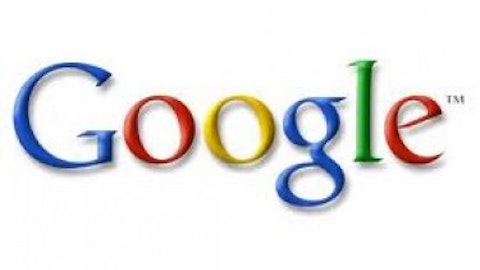Nevertheless, HP’s decision to diversify away from Windows doesn’t speak well to the operating system’s long-term health.
The problem with Windows 8
The problem with Windows 8 is that it attempts to do two things at once, and in the process, accomplishes neither particularly well.
Apple Inc. (NASDAQ:AAPL)’s CEO Tim Cook correctly identified this issue last year, joking that an appliance company could, if it was so inclined, merge a toaster with a refrigerator. But the combined product would be of far lesser quality — it would make more sense to have two separate devices.
Windows 8, when installed on a traditional desktop or laptop, gives no useful, additional functionality. Microsoft has been pushing for touch-based laptops and desktops, but having touch on those form factors is basically pointless. (I am currently writing this on a touch-enabled laptop. In the month that I’ve had it, I can count the number of times I’ve used its touch screen on one hand.)
At the same time, Windows tablets have thus far sold poorly. A Windows RT tablet may grant the user some additional functionality for work — but this is largely offset by the lack of apps.
Windows 8 is only really useful on one kind of device: the Ultrabook hybrid. Such devices include Microsoft’s Surface Pro or Sony Corporation (ADR) (NYSE:SNE)’s VAIO Duo. They have the power of a laptop, but the form factor of a tablet.
The shift to mobile
Increasingly, it looks as though a number of people are dropping their Windows PCs for smartphones and tablets. Certainly, these devices can’t accomplish everything, but for the majority of people who only need to browse the Internet, check Facebook Inc (NASDAQ:FB) and send emails, these devices are more than capable.
Traditional PCs are still needed for work-related tasks. But while a user could, for example, write code on a Surface Pro, they would probably prefer to do so using a workstation desktop.
This raises the obvious question: who exactly are these tablet hybrids for? With the consumer market satisfied with mobile devices, and workers still preferring traditional form factors, I wouldn’t expect them to sell in meaningful numbers (and so far they haven’t).
Android should benefit
As Gartner has predicted, Android should be the operating system most poised to benefit. It’s given away for free, so devices running it are available at nearly every price point. Consumers in the developed world might prefer Apple Inc. (NASDAQ:AAPL)’s more polished products, but on a global basis, Android should continue to control the market for the conceivable future.
Google Inc (NASDAQ:GOOG) benefits from Android by getting mobile users onto its services — Gmail, Google Docs, Goolge+, etc. Consequently, Android’s dominance should support Google Inc (NASDAQ:GOOG)’s burgeoning online ecosystem.
Windows is facing a secular decline
Bottom line, the Windows business is facing a secular decline. Consumers are shifting to mobile devices, much to the benefit of Google Inc (NASDAQ:GOOG)’s Android. Admittedly, workers will still need traditional form factors, but here, the added functionality of Windows 8 is of little use — it’s fine to stick with older versions of Windows.
Overall, Microsoft attempted to satisfy both groups, but wound up pleasing neither.
Bringing back the start button should make Windows 8 more palatable, but it does nothing to reverse the larger trends at work.
The article The Start Button Isn’t Going to Save Windows originally appeared on Fool.com.
Salvatore “Sam” Mattera has no position in any stocks mentioned. The Motley Fool recommends Google. The Motley Fool owns shares of Google and Microsoft. Salvatore “Sam” is a member of The Motley Fool Blog Network — entries represent the personal opinion of the blogger and are not formally edited.
Copyright © 1995 – 2013 The Motley Fool, LLC. All rights reserved. The Motley Fool has a disclosure policy.





